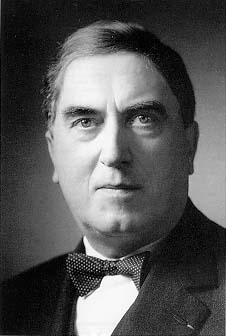Maurice Duruflé
Maurice Duruflé (born Louviers, 11 January 1902; died Louveciennes, 16 June 1986) was a French composer and organist. He was very self-critical and destroyed any of his compositions that he thought were not really good. This is why we now only have a small number of his works. He wrote choral music and music for the organ. His most famous work is his Requiem.
Life
Duruflé was born in Louviers, Haute-Normandie. In 1912, he joined the choir of Rouen Cathedral where he studied piano and organ. When he was 17 he went to Paris and had private organ lessons with Charles Tournemire. He became Tournemire’s assistant at the Basilique Ste-Clotilde, Paris until 1927. In 1920 Duruflé went to study at the Conservatoire de Paris. His organ teacher was Eugène Gigout. When he graduated he got first prizes in organ, harmony, piano accompaniment, and composition.
In 1929, Duruflé became organist at St. Étienne-du-Mont in Paris, a job he kept for the rest of his life.
In 1939, he gave the first performance of Francis Poulenc's Organ Concerto. In 1943, he became professor of harmony at the Conservatoire de Paris, where he worked until 1970. In 1947, Duruflé wrote his famous Requiem op. 9, for soloists, choir, organ and orchestra. In the same year Marie-Madeleine Chevalier became his assistant organist at St-Étienne-du-Mont. They married in 1953 after Duruflé divorced his first wife. The couple often travelled together to give organ recitals together. They always spent many hours practising on the organs on which they had to perform, often practising a lot of the time without the sound so that their fingers were really used to the feel of the organ.[1]
In 1975, Duruflé was badly hurt in a car accident and had to give up performing. His wife, who was not so badly hurt in the accident, was still able to play and continued to play the organ at St-Étienne-du-Mont.
Duruflé died in Louveciennes (near Paris) in 1986, aged 84.
Duruflé only left a few of his works for publication. His two important organ works are the Suite, op. 5 which has a famous Toccata as last movement, and his Prelude and Fugue sur le nom d'Alain. His Requiem remains a favourite work for choirs. Duruflé’s music uses Gregorian plainchant, modal harmonies and polyphonic writing. He was a great admirer of the music of Louis Vierne and Charles Tournemire and he made transcriptions of some of their improvisations.
Other websites
References
- ↑ Roger Fisher: “Marie-Madeleine Duruflé: A Reminiscence” in Organists’ Review vol LXXXVI, Feb 2000 p.36
